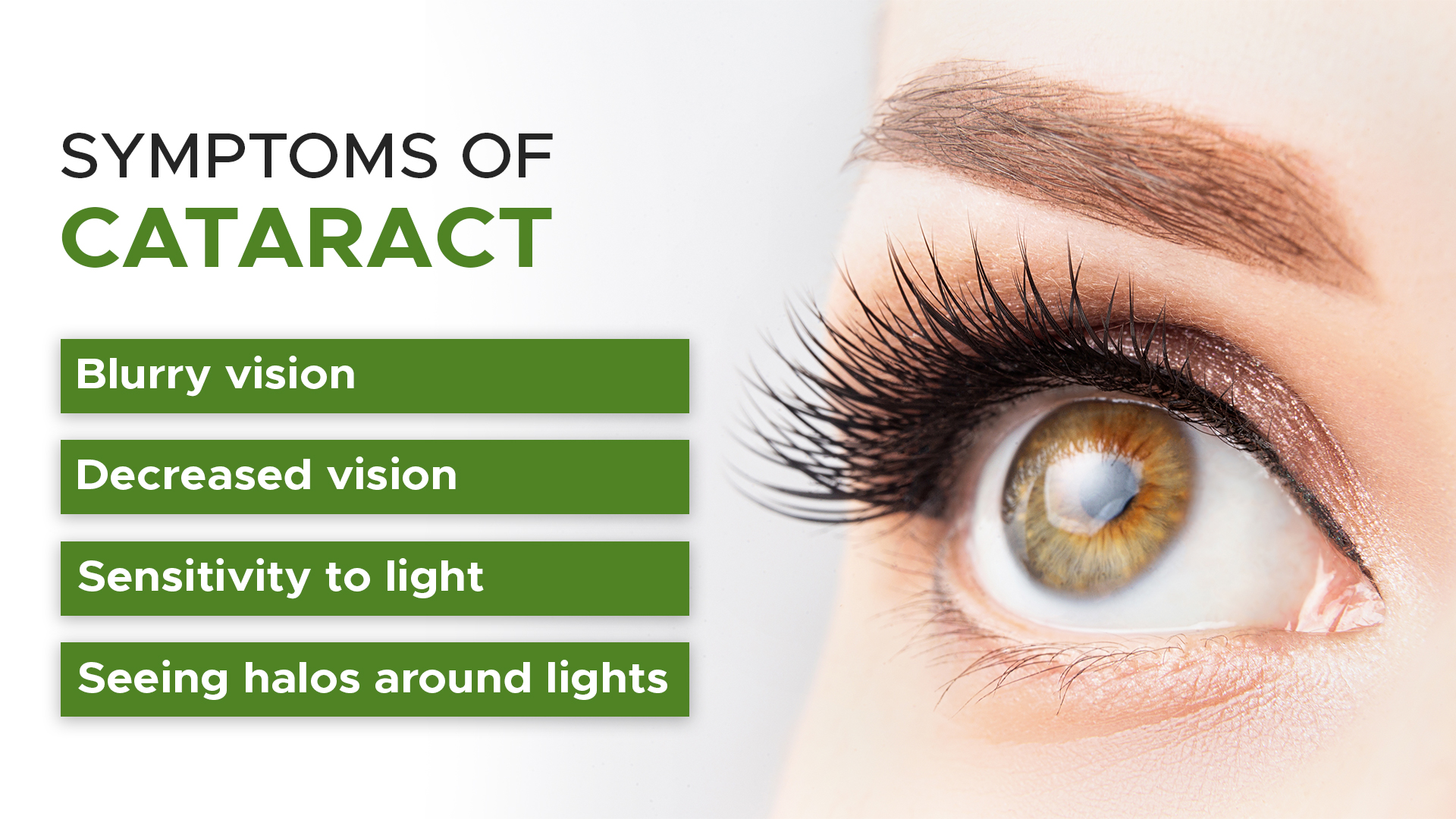Save 25% On Your First Autoship Order
Save 25% On Your First Autoship Order

Did you know that cataract surgery is not just for senior citizens? While they generally form as we age, cataracts can happen to people of all ages. In fact, you can be born with cataracts!
If you have been having trouble with your vision and your doctor has mentioned “cataracts”, you are not alone. Cataract surgery is one of the most common eye health issues.
While there are different types of cataracts, they typically have the same symptoms. Common indications of cataracts include:

There are four types of cataracts. The Mayo Clinic describes them as follows:
Your ophthalmologist will help you determine your need for cataract surgery. These are the things to consider that will help you decide if cataract surgery is right for you:
Your vision may be blurry right after cataract surgery. The Mayo Clinic states that while the eye will take 8 weeks (about 2 months) to fully heal, vision should improve within a few days. You may have some mild pain, discomfort, or itching in the surgical eye. Avoid the urge to rub. Any discomfort should disappear within the first two days.
Your surgeon may require you to wear a protective shield over your eye during the day and while sleeping for a few days after surgery. Colors may seem brighter, and vision will become clearer. Eye drops to prevent infection, control pressure, and reduce swelling will be prescribed. Make sure you follow your surgeon’s instructions.
According to Medicare.org, Part B covers pre- and post-surgery exams, and surgeon and surgical center fees. Patients are usually responsible for fulfilling any deductible and then 20% co-pay for the surgery and topical anesthesia.
Cataract surgery is a very personal decision. Talk to your doctor about your concerns to make the right decision. They can walk you through the procedure's potential outcomes and discuss possible alternatives.
Disclaimer: All content found on our website, including images, videos, infographics, and text were created solely for informational purposes. Our reviewed content should never be used for the purpose of diagnosis or treatment of any medical conditions. Content shared on our websites is not meant to be used as a substitute for advice from a certified medical professional. Reliance on the information provided on our website as a basis for patient treatment is solely at your own risk. We urge all our customers to always consult a physician or a certified medical professional before trying or using a new medical product.

Linda Guerrera has been the Digital Content Manager for Health Products For You since 2022. A recipient of the New York State Broadcasters Award for Outstanding Work in Radio, she spent over ...
How To Increase Iron Levels Quickly
It’s a question that must have puzzled you like many others. Iron is essential in hemoglobin production and its inadequate levels can negatively impact your health. Dive into this informative article to explore top iron-rich foods that can help you fight iron deficiency.
10 Best Coccyx Cushions for Tailbone Pain
If you're like most people, you spend about 8 to 10 hours sitting every day. However unhealthy, it is part of life for many, and can cause tailbone pain. Coccyx cushions can help alleviate this pain. Click to read more and find the perfect coccyx cushion for your tailbone pain.
5+ Best Adult Diapers for Fecal Incontinence
Dealing with fecal incontinence can be challenging, but you're not alone. Read this article and navigate through discreet and effective solutions that help you manage fecal incontinence and let you live life on your terms with confidence and comfort.
Top 5 Best Reviewed Nebulizers of 2024
Need an effective and affordable nebulizer? Look no further, in this article we offer 5 of our best reviewed nebulizers that are loved by our customers. Click to read more and find the perfect nebulizer for all your respiratory needs.
10 Best Penis Pumps For Erectile Dysfunction
For anyone dealing with erectile dysfunction, penis pumps serve as a great way to manage it. But with so many products available, determining the best one for your needs can be challenging. To assist you in refining your choices and making an informed decision, here are our top 10 options, recognized for their effectiveness and safety.